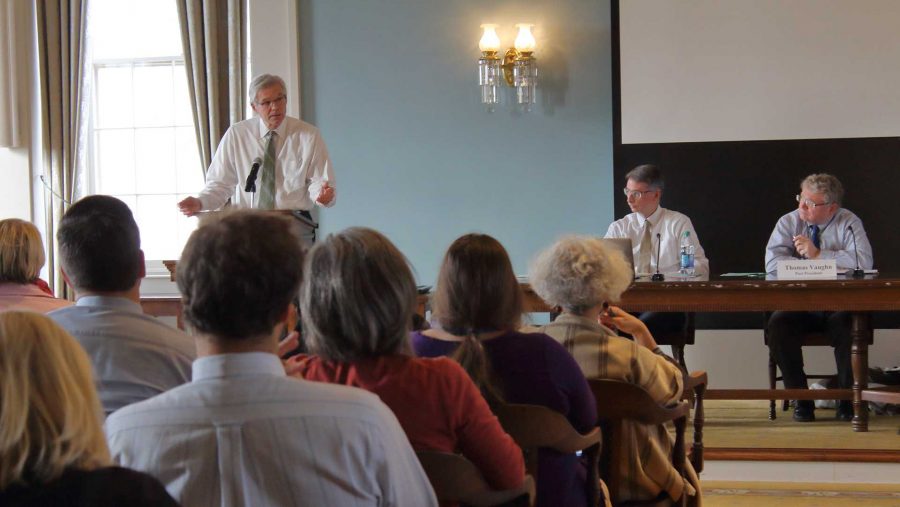An evaluation of the University of Iowa’s academic structure may mean changes to the current size of colleges and departments across campus, including the potential deconstruction of the College of Liberal Arts & Sciences, and re-evaluating general education requirements.
The UI Faculty Senate met in the Old Capitol Senate Chamber on Tuesday to discuss the matters. During the meeting, the representative of the UI’s 2020 Academic Organizational Structure Task Force, Graduate College Dean John Keller and UI Pappajohn Education Center Director Tom Rice discussed the task force’s research report.
“[The plan] is more about academic change,” Keller said.
Former UI Provost Barry Butler directed college leadership to study potential organizational changes that could be made to the UI to enable it to “become a more forward-looking, nimble university that focuses our limited resources in support of academic excellence,” according to a memo sent to administrators and shared governance leaders Jan. 19.
The study is now in its second phase, which is focused on gathering input from the campus community.
The academic change includes resizing colleges, re-envisioning the general education curriculum, and continuing to review of academic programs and curricula. The key points for all the changes is to help administrative arrangement on individual academic departments with limited resources.
RELATED: Phase Two of Iowa’s 2020 Academic Structure Study begins
Larger colleges such as the College of Liberal Arts & Sciences may be broken into several smaller units, Keller said. In doing so, the report suggests the UI could better track small units’ academic performance and consolidate units to strengthen them with “shared vision for curriculum, research, and service.”
Additionally, the report lists promoting innovative programs as one of the principles guiding the restructuring process. The university would be willing to “enhance the effectiveness and efficiency of communication and collaboration at all levels” to make units more interdisciplinary. This would be in line with the UI’s strategic plan, which identifies the expansion of interdisciplinary learning and engagement as an indicator of success.
The report also brought up several challenges, such as how to define “success” for different units, how to account performance measures, and how to let the university realize the collaboration and interdisciplinary work.
“This perspective will challenge the institutional thinking which is steeped in tradition and mired in territorialism,” the report said.
In responding to certain complaints, Rice promised that throughout the semester, there would be a series of town halls to listen to what people think about UI 2020 Academic Organizational Structure Plan.



